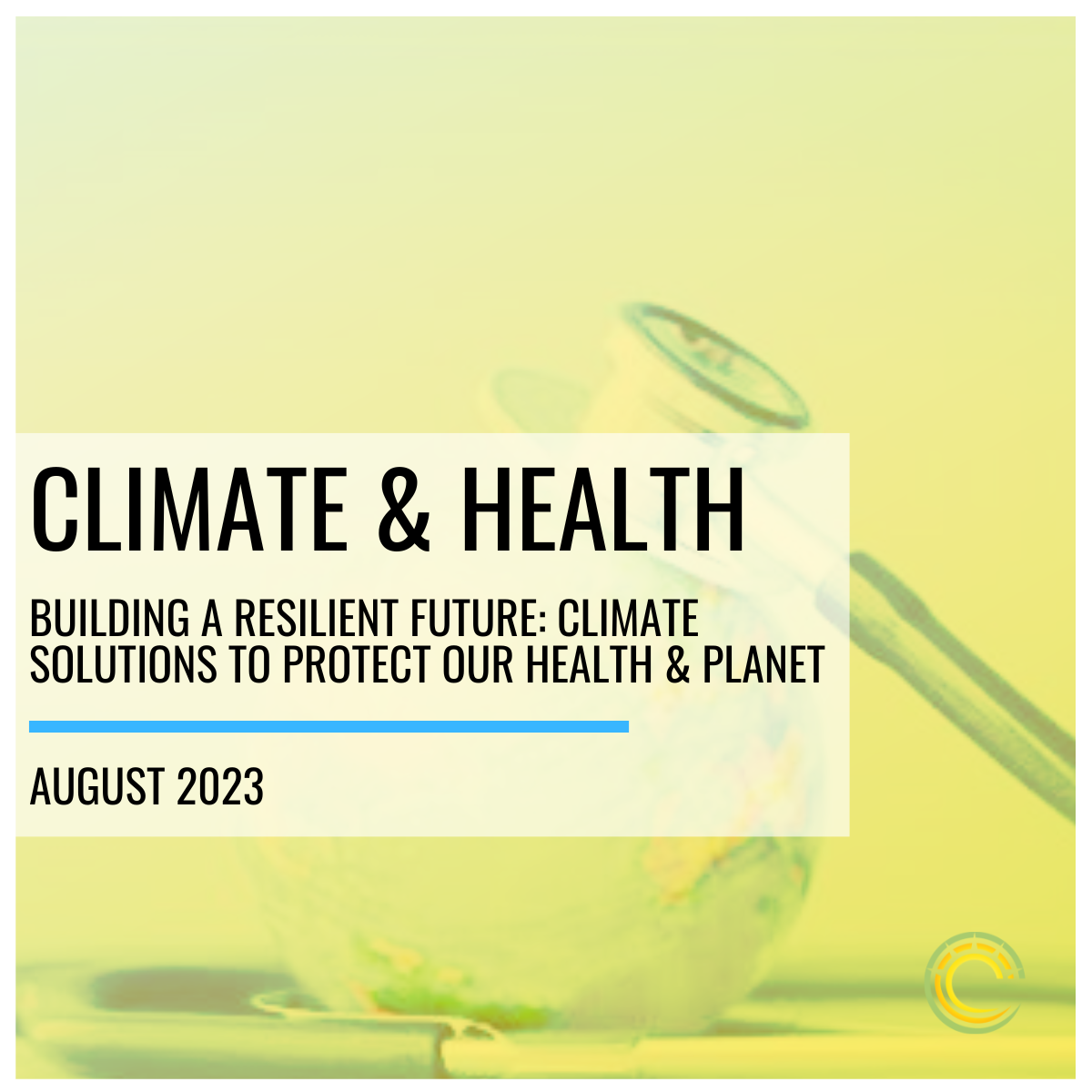Climate and Health Report Reveals Communities of Color Most At-Risk Due to Climate Threats
Today, the Community Climate Collaborative (C3) released a report that underscores the pervasive health effects of climate change and highlights the urgent need for equitable solutions. The report, titled "Building a Resilient Future: Climate Solutions to Protect Our Health and Planet," not only highlights the intersection of climate change, health, and equity but also lays out a vision for a healthier and more just world.
“Building a Resilient Future” sheds light on the converging challenges faced by communities historically marginalized by health inequities and climate injustices, which is a stark reminder of the intertwined legacies and nature of these issues. "Centuries of health inequities and climate injustices coalesce in these communities, resulting in disproportionate suffering," the report states.
“Across the board, we’re seeing vulnerable populations projected to bear the brunt of climate-related disasters due to existing systemic inequities that marginalize Black and Latino communities and those living in poverty,” said Susan Kruse, executive director of C3. “We’re talking about an increase in extreme heat, displacement, loss of housing, financial hardship, and even gender-based violence that will lead to a shorter life expectancy.”
“This is a global health crisis that requires an immediate response at every level to protect and save people,” Kruse added.
The report is structured into six key sections: (1) Global Warming and Extreme Weather, (2) Transportation, (3) Land-Use and Zoning, (4) Reducing Fossil Fuel Dependency, (5) Energy, and (6) Mental Health. Each section delves into the intricacies of how climate change impacts health and underscores the vulnerabilities of historically marginalized communities, such as:
Escalating Extreme Weather Impact: Charlottesville faces a potential surge of 20 days annually, with a heat index surpassing 105°F within the next three decades. Vulnerable populations, particularly Black communities, are projected to bear the brunt of increased extreme heat deaths. Mitigation strategies like planting trees, heat-smart infrastructure, and subsidized cooling systems can address both global warming and health effects.
Mounting Climate Hazards: By 2050, extreme precipitation is poised to emerge as a significant climate-related threat to cities like Richmond and Charlottesville. Historical inequities embedded within zoning practices have led to persistent racial disparities, leaving Black neighborhoods particularly vulnerable to the ravages of extreme flooding. This situation worsens the existing injustices these communities face. Moreover, the aftermath of acute events, such as floods and wildfires, casts long shadows on mental well-being, entailing enduring emotional and financial distress due to property loss.
Prolonged Mosquito Seasons and Health Risks: As temperatures rise, Charlottesville's mosquito season has expanded by nearly 20%, spanning 114 days. This prolonged season, coupled with expanded mosquito ranges, amplifies the transmission of vector-borne diseases such as Malaria and Lyme Disease, thereby increasing the breadth of health risks.
Transportation's Climate and Health Impact: Transportation contributed significantly to greenhouse gas emissions, accounting for 52% in Albemarle County and 31% in Richmond in 2018. Internal combustion vehicles emit harmful gases, leading to health issues such as asthma, heart problems, and premature death. Racial and ethnic disparities persist in exposure, with nonwhite neighborhoods experiencing higher pollution levels and related premature deaths.
Positive Shifts for Health and Environment: Shifting to zero-emission passenger vehicles by 2040 could avert thousands of premature deaths, asthma attacks, and lost workdays. Virginia's adoption of the ACC II in 2021 is projected to reduce carbon pollution, prevent respiratory illnesses, and save lives by 2050.
Amidst these challenges, C3’s report also delivers a message of hope by emphasizing the potential for synergy between addressing climate change, promoting equity, and improving health outcomes. As the report highlights, "(...) where there is an overlap in the issues of climate change, equity, and health, there is also an overlap in their solutions." For instance, transitioning to electric transportation can both slow climate change by reducing tailpipe greenhouse gas emissions but also reduces health impacts from asthma and other respiratory issues.
“By uncovering and highlighting the hidden connections between climate change, health, and equity, C3 aims to create unity between climate action and other social justice initiatives, so that community members can join forces in advocacy for intersectional policy solutions,” said Caetano de Campos Lopes, director of climate policy.
Access the full report "Building a Resilient Future: Climate Solutions to Protect Our Health and Planet" here or on our website at theclimatecollaborative.org/c3-reports.

